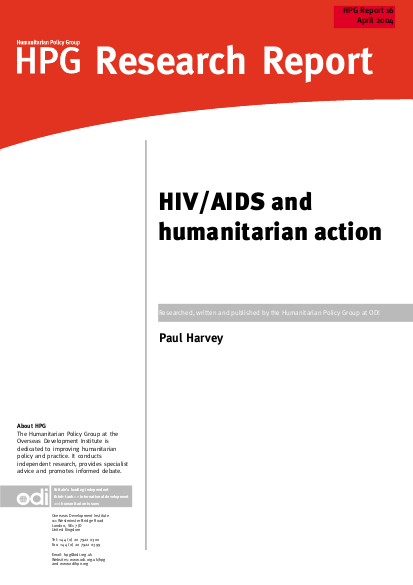
The crisis in southern Africa during 2002 and 2003 highlighted the complex interactions between HIV/AIDS, food security and famine. The UN Special Envoy argued that HIV/AIDS was ‘challenging the paradigm of humanitarian assistance’; Alex De Waal contends that it threatens ‘new variant famine’. Others have asked whether the importance of HIV/AIDS as a factor in the crisis has been overstated, and whether an undue focus on HIV/AIDS risks neglect of other equally important issues. There are a number of reasons why HIV/AIDS must concern humanitarian actors working in the context of an epidemic: • The mortality and suffering created by HIV/AIDS is a humanitarian concern in its own right. The impact of the epidemic is growing and will be felt for decades. • HIV/AIDS has clear negative effects on household food security, adding another burden to already vulnerable households. This will make communities more vulnerable to other shocks, such as drought or conflict. • HIV/AIDS has particular characteristics that may create new types of vulnerabilities and exacerbate existing ones, and this will need to be recognised in responding to crisis. • Emergency situations may increase people’s susceptibility to the transmission of HIV/AIDS, further fuelling the epidemic.